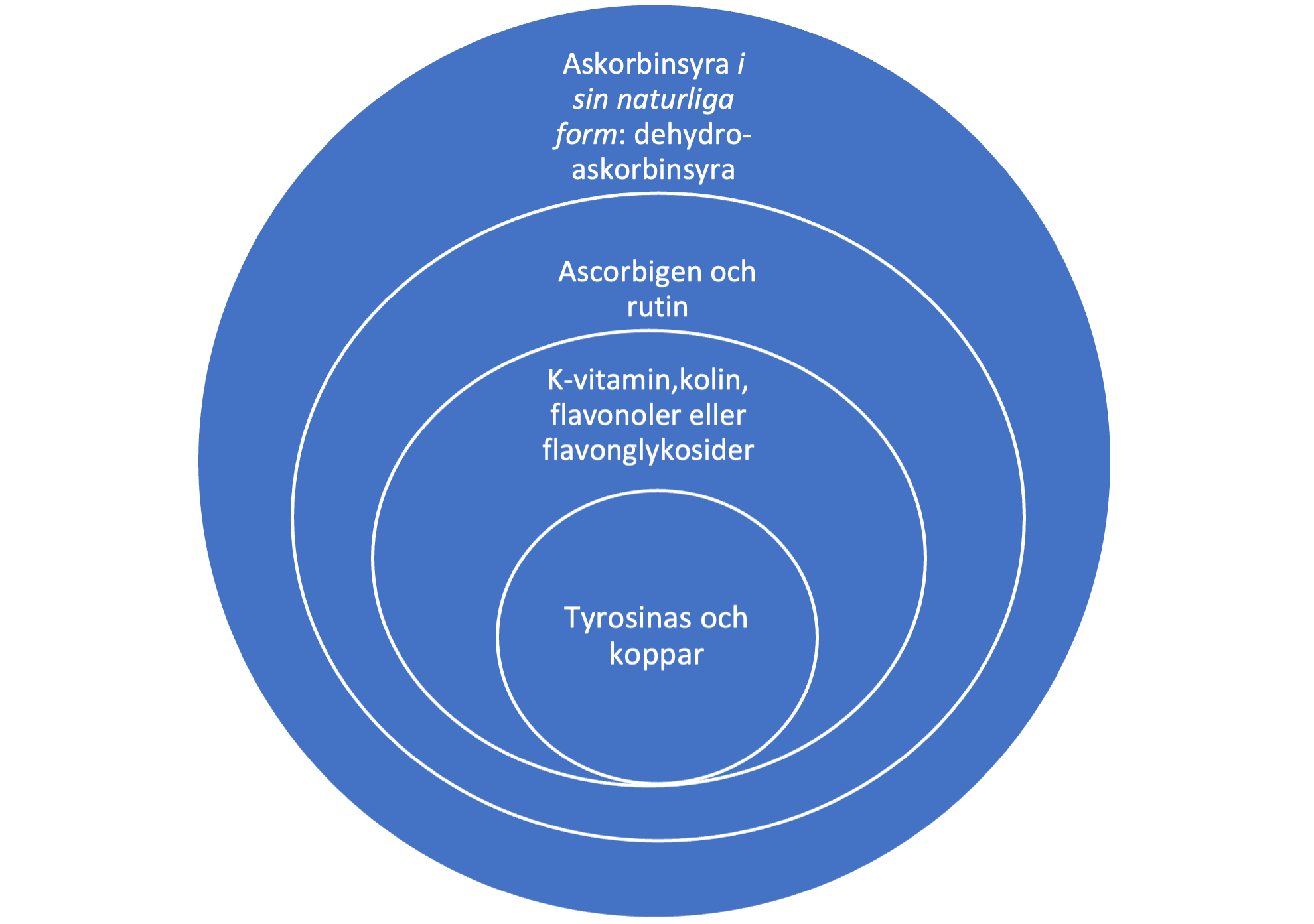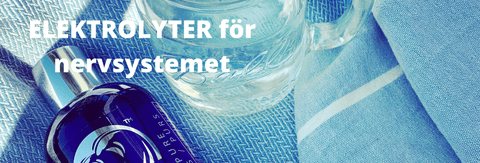Vitamin C - a complex or an isolated molecule?
- What is the difference between synthetic and natural vitamin C? I myself was one of those who thought: "a molecule is a molecule, it gives the same effect regardless of whether it is synthetically produced or not".
But all while deep diving into and reflecting on how the body works on a biochemical and quantum level* - both during my own health journey and when I got to follow others' - I have gained a wider perspective on how the body really uses nutrition in all its forms. Real food with complexes and cofactors intact gives the body the right conditions to carry out all the thousands of processes that take place in a healthy cell, second by second. Synthetic supplements run the risk of interfering with natural processes, especially if taken unbalanced over a longer period.
The misunderstood discovery of vitamin C
The doctor Albert Szent-Györgyi studied a part of our cellular respiration: our cells' energy production. In 1937, he received the Nobel Prize for the discovery of, among other things, vitamin C and its role in the citric acid cycle.
What many people don't know is that Szent-Györgyi was actually looking to identify vitamin P (the permeability factor) and hyaluronic acid, a copper-based enzyme involved in healing. Along the way he discovered hexuronic acid – known as ascorbic acid which is actually just one part of the whole vitamin C complex.
Szent-Györgyi had concluded that ascorbic acid itself did not cure all symptoms of scurvy, vitamin C deficiency. To relieve symptoms of leaky blood vessels, the other parts of the complex he extracted from paprika and lemon juice were also required.
On the way to the Nobel Prize, attention was not paid to this whole, but the isolated ascorbic acid ended up alone in the spotlight. And that's the way it is - perhaps until now, when more and more of us realize what a real vitamin C complex really contains and what its action on a biochemical level means.
- A vitamin is a substance that makes you sick if you don't eat it.
-Albert Szent-Györgyi
What is ascorbic acid and how is it produced?
Ascorbic acid is manufactured on a large scale industrially, for example in China. The raw material can be wheat, tapioca or other crops such as corn. The corn can be GMO or non-GMO, it is difficult to know as most raw material suppliers do not report the origin but only the final product.
Pure ascorbic acid is quickly oxidized (destroyed) by heat, light, moisture or just air and is then no longer useful.
Real vitamin C – a whole complex of substances
Here is a schematic of a full-spectrum vitamin C complex . As you can see, ascorbic acid is only part of it, the outer part – and retains its natural structure.

To get all the benefits of vitamin C without side effects, the body needs the whole complex.
The ascorbic acid included in the outer shell of the full-spectrum complex is not exactly the same substance as synthetic ascorbic acid, it has its own form.
- Research is to see what everybody else has seen, and to think what nobody else has thought.
-Albert Szent-Györgyi
*Quantum level refers to areas where particles smaller than atoms move. Here, considering the body's inherent electrical tension across the cell membranes and the electron transport chain in the mitochondria. The membrane potential enables nerve impulses. The electron transport chain is the final step in the body's production of energy via the processing of food and light .
Image credit: Dominique Richard: “Quantitative Analysis of Vitamin C-complex Found in Embryonic Plant Extracts”




